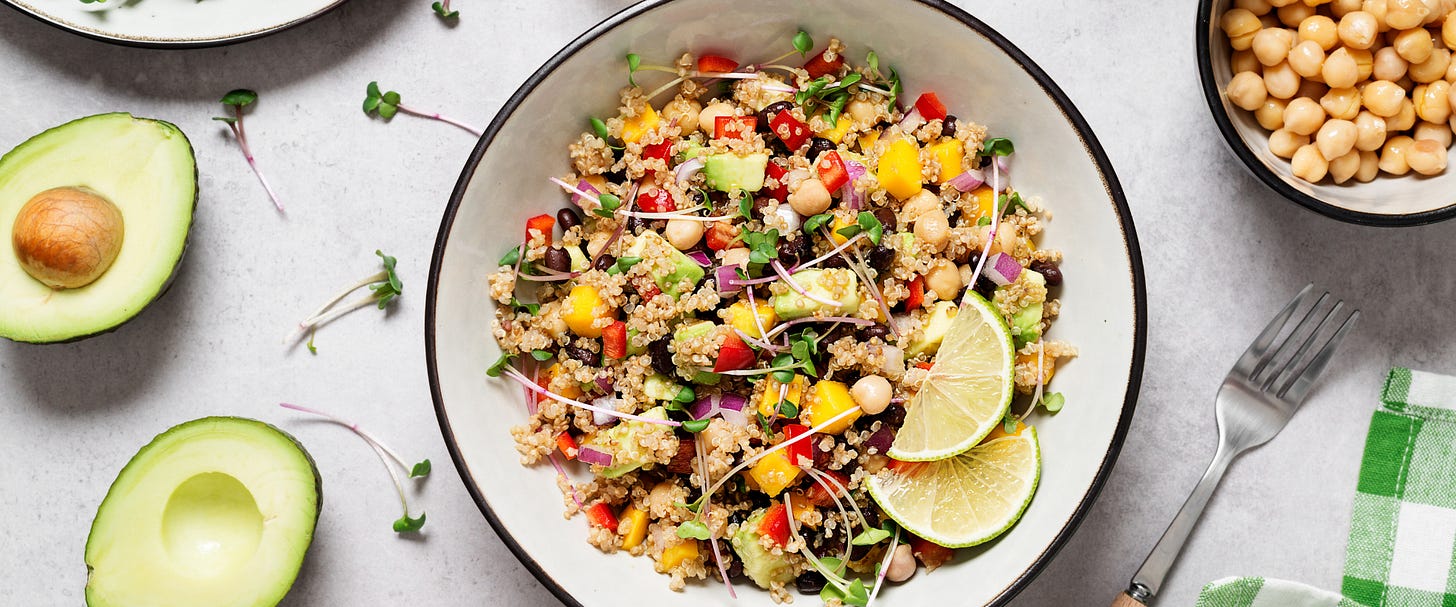Nourishing Your Brain: Foods and Practices for Brain Health
On World Alzheimer's Day, let's look at some foods that could be great for your brain health.
Today is World Alzheimer's Day — a global effort to raise awareness and challenge the stigma surrounding Alzheimer's disease and other dementias. This cause is deeply personal to me, so I naturally think about brain health a lot.
About seven years ago, I started a yoga teacher training certification course. At the time, I thought I might want to switch careers and become a full-time teacher. Spoiler: I didn’t. But those 200 hours were truly life-changing. I learned so much about breathwork, anatomy, stress management, and deepened my yoga practice.
During those 200 hours, I felt the best I’ve ever felt in my life. I was invigorated. Yoga and meditation are truly healing. I know it’s trendy to focus on mastering handstands or splits, but yoga is about so much more than that.
That said, there’s no single magic bullet for protecting brain health. Yoga and meditation alone aren’t enough to ensure everything will be okay.
Lifestyle changes are essential. As more research emerges on Alzheimer’s and other dementias, we’re learning there are many ways to help prevent these devastating diseases.
While I’m a big believer in meditation and yoga, I understand they’re not for everyone. So, let’s talk about something we all enjoy: food!
Green Leafy Vegetables
We’ve long known the importance of green leafy vegetables for our health. And I get it—they might not be your favorite, but I promise you can make them delicious.
Some examples include kale, spinach, collards, and broccoli, all rich in nutrients like vitamin K, lutein, folate, and beta carotene, which research shows can benefit brain health.
My brother makes an incredible kale dish by crisping it up with olive oil, red pepper flakes, garlic, and salt. I could easily eat a huge bowl of it by itself!
Fun Fact: Lightly cooking spinach helps your body absorb its nutrients better. So, next time you grab a bag of spinach, try lightly sautéing it with olive oil and sea salt to make it more digestible.
Fatty Fish
Fatty fish are abundant sources of omega-3 fatty acids, healthy unsaturated fats that have been linked to lower blood levels of beta-amyloid—the protein that forms damaging clumps in the brains of people with Alzheimer's disease.
One of my favorite foods is salmon. Growing up, whenever I visited my grandparents, I would always ask my grandma to make her salmon fillets with a caramel brown sugar sauce. That meal brings back so much joy and memories, especially since my grandpa loved it too.
Nowadays, I avoid refined sugar (a topic for another day), so I don’t make it with the brown sugar sauce anymore. But salmon is so versatile! Whether it’s honey mustard salmon, garlicky salmon, or raw sashimi, the options are endless.
Looking for an easy fatty fish? Check out my post about the power of sardines.
And if fish isn’t your thing, that’s okay! You can talk to your doctor about incorporating flaxseed oil or omega-3 supplements into your routine.
Berries
We may be nearing the end of peak berry season in the U.S., but that doesn’t mean you should stop eating them. In fact, frozen berries are often better than fresh since they’re frozen at their peak ripeness.
A study done by researchers at Harvard's Brigham and Women's Hospital found that women who consumed two or more servings of strawberries and blueberries each week delayed memory decline by up to two-and-a-half years.
Just imagine! A simple bowl of berries or adding them to yogurt or oatmeal can be great for your memory.
Tea and Coffee
This one might surprise some people, but if you enjoy a cup of green tea or coffee, go for it! Studies suggest these drinks don’t just provide short-term mental clarity but may have long-term benefits too. Just try to skip the sugar-loaded options.
Nuts
Nuts, especially walnuts, are similar to fish in terms of brain health benefits. If you’ve ever had fresh walnuts, you know how rich in oils they are. Walnuts, in particular, are packed with omega-3 fatty acids, which are great for your brain, arteries, and blood pressure.
Eggs
Eggs had a bad reputation for a while, but they’re actually very beneficial. Unfortunately, I have an egg allergy (which I wouldn’t wish on anyone since eggs are in so many things), but I still want to highlight their benefits.
Eggs are rich in vitamins that support brain health, including folate, B12, B6, and choline.
Choline is a nutrient that your body uses to create acetylcholine, which helps regulate mood and memory. If you need to avoid eggs like I do, you can still find choline in foods like broccoli, fish, nuts, and seeds.
Quinoa
You’ve probably heard quinoa called a superfood, and while it might not always make the top ten lists for brain health, I love it and wanted to highlight it here. A quinoa salad is one of my go-to comfort foods.
Quinoa is loaded with protein, iron, potassium, fiber, manganese, folate, magnesium, and quercetin. Iron keeps your red blood cells healthy, which supports brain health.
Quinoa is incredibly versatile. You can make a warm salad with roasted chickpeas or a cold salad with vinaigrette, cucumbers, and bell peppers. You could even turn quinoa into a breakfast dish by adding some maple syrup and berries on top.
I encourage you to try incorporating one or two small changes each day that are within your control. Whether it’s listening to a meditation for five minutes, doing some deep breathing before bed, or eating an extra serving of leafy greens, your future self will thank you.
If you or someone you know needs help, the Alzheimer’s Organization has a 24/7 hotline that you can call: 800.272.3900.
Join the fight here.




